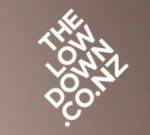
Social Media for Visas – Imagine this.
You’re a person just like most, with dreams, aspirations and desires for the best life that you can build for yourself.
Imagine you have spent months, or even years preparing the best argument for the people in charge, proving you deserve to live in a place that might have more opportunity than where you came from.
Imagine you may even be doing this because where you are right now isn’t a safe place, not for you or your loved ones. Or maybe you just want to visit and work for a while, exploring the world just as countless others have before you.
All of these are understandable thoughts and wishes. It’s natural for human beings to want the best life possible for themselves and the people close to them. A lot of us, at some stage in our lives, have had to fight tooth and nail to secure our futures.
So what happens when all of this hinges on your social media history?
Social Media for Visas. In order to apply for a visa in the United States of America, applicants must now submit 5 years of their social media history, among other things such as phone numbers and email addresses.
Social Media for Visas. What does this mean for me?
For young Kiwis, technology has become an incredibly significant aspect of life.
At school, the Internet can be used to achieve depths of research and access to resources that would previously have been unheard of. At home, most of our friends interact with each other through a phone or computer screen. We view a colossal amount of our entertainment through apps ranging from TV, such as Netflix, to social media, such as Facebook, Instagram, Twitter and many more. Most importantly, it is through these social media apps that the majority of our exposure to and communication with the outside world takes place.
With technology having such great involvement in our lives, it is hard to know when to draw a line between what goes out on to social media and what stays private. It cannot be emphasized enough that once you put something up on the Internet, that is where it stays.
What would you do if Jacinda Ardern asked you right now for the last 5 years of your social media history?
What if she told you that if she found anything that could be perceived as threatening, that you would not be allowed to live in New Zealand?
Would you still be here tomorrow?
In light of this new development in US’ immigration, we encourage you to consider the consequences of sharing personal content online.
From employers to now some authoritative figures, what you put online is accessible to essentially anyone that knows how to look.
And in a world that unfortunately features those who would use what you upload against you, it is important to think twice before sharing the wrong things.
Make sure that the image you project onto the digital world is one you’re proud to share.
I’m Enough is a charity created to provide digital coping strategies to young people and those that care about them. If you would like to provide us with your valuable insight or feedback on this news item please connect with the I’m Enough Charity Team.



